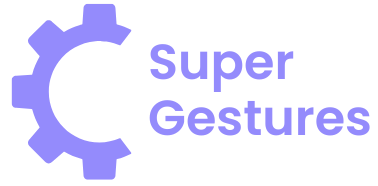Table of Contents
ToggleIn a world where everyone seems glued to their screens, the right app can turn a mundane task into a delightful experience. Whether it’s simplifying daily chores or sparking creativity, app solutions are the unsung heroes of our digital lives. They’re like the Swiss Army knives of technology—always ready to tackle whatever challenge comes their way.
Imagine having a personal assistant who never sleeps and always knows what you need. From boosting productivity to helping you unwind after a long day, the right app can be a game changer. With countless options out there, finding the perfect app solution might feel like searching for a needle in a haystack. But fear not! This guide will uncover the best app solutions to elevate your everyday life, making it easier, more enjoyable, and maybe even a bit more fun.
Overview of App Solutions
App solutions represent a cornerstone of modern digital interaction. They simplify tasks ranging from communication to productivity and entertainment. Users benefit from tailored applications designed specifically for their unique needs. The diversity of these solutions allows people to choose options that align with their lifestyle.
Productivity apps enhance time management and task organization. They enable users to streamline workflows, making daily operations more efficient. Notably, popular tools include Trello and Asana, which assist teams in coordinating projects and tracking progress.
Communication apps facilitate instant messaging and video conferencing. Platforms like Slack and Zoom connect colleagues, friends, and family with ease. These apps support both personal and professional interactions, fostering collaboration in an increasingly digital world.
Lifestyle apps cater to various interests, enhancing wellness and leisure. Fitness and health applications, such as MyFitnessPal and Headspace, promote self-improvement and mindfulness. Users can track their progress, set goals, and maintain motivation through these platforms.
Financial apps transform money management. Tools like Mint and PayPal simplify budgeting, tracking expenses, and conducting transactions. Users gain control over their finances with real-time insights into their spending habits.
Entertainment apps provide endless options for relaxation and leisure. Streaming services like Netflix and Spotify deliver movies, shows, and music on demand. These platforms keep users entertained and engaged with vast libraries of content.
The overwhelming array of app solutions highlights the need for informed choices. Users can enhance their experiences by selecting the right apps that fit their requirements. These digital tools foster greater productivity, connectivity, and enjoyment in everyday life.
Benefits of Using App Solutions

App solutions significantly enhance daily routines and contribute to overall well-being. They provide streamlined processes across various aspects of life.
Enhanced User Experience
User experience improves with tailored app solutions. They offer intuitive interfaces designed for easy navigation. Features like personalized recommendations ensure users engage with content that suits their preferences. Accessibility options cater to diverse user needs, promoting inclusivity. Engaging visuals and feedback mechanisms keep users involved and informed. With seamless integration across devices, users enjoy continuity and convenience regardless of their platform. Feedback loops allow developers to refine app experiences based on user input.
Increased Efficiency
Efficiency sharply increases through the use of app solutions. Task organization software enhances productivity by allowing users to prioritize workload. Collaborative tools streamline communication, enabling teams to share updates in real time. Scheduling apps help manage appointments effectively, reducing overlap and missed commitments. Financial tracking apps provide insights into spending habits, promoting smarter financial decisions. With automation features, mundane tasks receive reduced attention, freeing up time for more critical activities. Overall, app solutions promote a balanced approach to managing both personal and professional responsibilities.
Types of App Solutions
Various types of app solutions cater to specific needs, enhancing functionality and user experience across different platforms.
Mobile App Solutions
Mobile app solutions focus on delivering seamless experiences on smartphones and tablets. These applications run on either iOS or Android operating systems, providing users with access to essential functions on the go. Popular examples include fitness tracking apps that monitor health metrics and travel apps that assist with itinerary management. Accessibility plays a key role, ensuring that users can easily engage with mobile apps through intuitive designs. Many mobile apps utilize device capabilities such as GPS for location tracking and camera integration for enhanced interaction.
Web App Solutions
Web app solutions operate through web browsers, allowing access without installation. Users can engage with web apps on any device with internet connectivity, ensuring consistent functionality. Common web apps include project management tools that facilitate remote collaboration and online shopping platforms where users can browse and purchase products. The responsive design of web apps ensures optimal usability across various screen sizes. Security features, such as encrypted connections, protect user data while allowing convenient access to information from multiple locations.
Enterprise App Solutions
Enterprise app solutions target the unique needs of businesses, enhancing productivity and efficiency across teams. These applications streamline operations such as customer relationship management and data analysis, tailored to specific organizational functions. For instance, enterprise resource planning systems integrate various business processes into one cohesive application. User access controls within these apps safeguard sensitive information while promoting collaboration. Compatibility with existing software systems ensures smooth integration, fostering an adaptable workflow for employees.
Factors to Consider When Choosing App Solutions
Selecting the right app solution requires careful consideration of several key factors. These factors can significantly influence the overall effectiveness and satisfaction that users experience.
Scalability
Scalability matters for both individual and business users. It allows the app to grow alongside changing needs. Apps that adapt to increasing demands prevent performance issues and storage limitations. For instance, project management tools should support both small teams and large organizations seamlessly. Features enabling the addition of users or functions can help meet future requirements. Opting for scalable solutions ensures long-term usability without frequent transitions to new platforms.
Security
Security plays a crucial role in app selection. Protecting sensitive data from breaches should be a priority. Robust encryption techniques and compliance with industry standards contribute to user trust. Apps with multi-factor authentication add an extra layer of protection. Reviewing security protocols helps assess potential risks and vulnerabilities. Consequently, prioritizing security features not only safeguards information but also enhances user confidence in the app’s reliability.
Cost-Effectiveness
Cost-effectiveness directly affects the decision-making process when choosing app solutions. Analyzing the total cost of ownership includes initial fees, ongoing expenses, and potential upgrade costs. Free or low-cost apps may lack features or support necessary for businesses. Balancing price and functionality leads to better investment returns. Considering long-term adaptability can further ensure that the chosen solution offers value over time. A strategic approach to cost-effectiveness prevents overspending while optimizing functionalities.
Future Trends in App Solutions
Emerging trends in app solutions indicate a significant shift towards artificial intelligence and machine learning. AI enhances personalization, allowing apps to adapt to individual user preferences in real-time. Machine learning algorithms also analyze data to predict user behavior, leading to improved functionality and user engagement.
Increased focus on cross-platform compatibility drives the development of web and mobile solutions. Users expect seamless experiences whether accessing apps through smartphones, tablets, or desktops. Developers prioritize responsive design, ensuring a consistent interface that works across diverse devices.
Enhanced security features take center stage as data privacy becomes a crucial concern. Robust encryption methods and advanced authentication processes protect sensitive information, fostering user trust. Compliance with regulations such as GDPR also shapes app development, increasing focus on secure data handling.
Cloud integration is another trend, allowing for greater flexibility and scalability. Cloud-based applications enable users to store data securely and access it from anywhere. This cloud technology supports collaborative projects, making real-time updates and sharing much easier.
The rise of voice-activated technology influences app development as well. Users appreciate hands-free functionality through smart assistants like Siri and Alexa. Developers integrate voice recognition capabilities into apps, facilitating easier navigation and improved user experiences.
Furthermore, the Internet of Things (IoT) expands connectivity between devices and applications. Smart home devices link with various apps, enhancing users’ control over their environments. This interconnectedness streamlines daily tasks, improving overall efficiency.
Lastly, a growing interest in health and wellness apps reflects societal shifts towards better self-care. Apps that track fitness, meditation, and nutrition gain popularity for their role in promoting healthier lifestyles. As awareness about personal well-being increases, developers focus on creating more engaging and supportive health-oriented solutions.
App solutions have become integral to enhancing everyday life. They streamline tasks boost productivity and foster creativity in ways that were once unimaginable. With the right apps users can navigate their personal and professional responsibilities more efficiently.
As technology evolves the potential for app solutions continues to expand. Embracing these innovations not only simplifies daily routines but also opens doors to new experiences. By choosing the right apps tailored to individual needs users can significantly improve their quality of life. The future of app solutions promises even greater advancements making it an exciting time for both developers and users alike.




